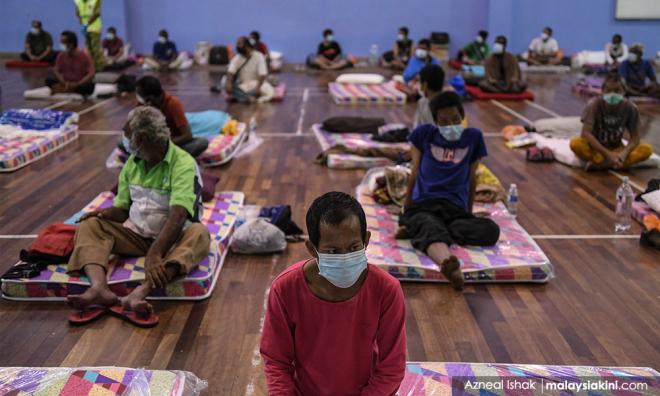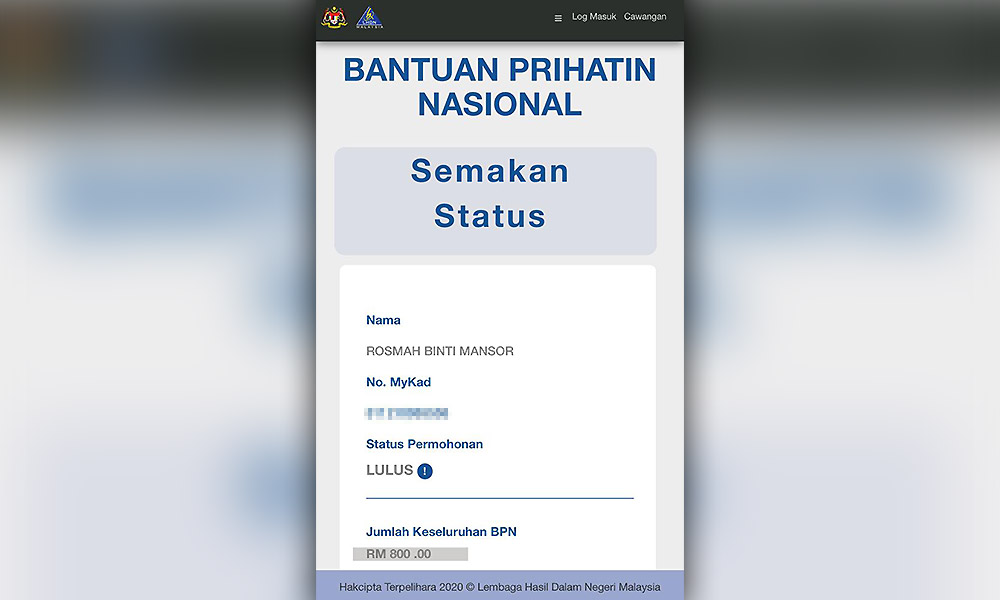
MP SPEAKS | Prime Minister Muhyiddin Yassin has unveiled two stimulus packages, one called “Prihatin” (which was released on March 27) and the other, “Prihatin Plus” (on April 6) as part of his government’s response to the economic crisis resulting from the Covid-19 pandemic.
While the two packages are steps in the right direction compared to the government’s earlier responses, both still fall short of the major paradigm shift that our country desperately needs to overcome this unprecedented crisis as I wrote on March 25.
We must learn the lessons from the economic crises of the past, where shareholders get bailed out via the rakyat’s money with little done for workers.
We indeed need to ensure that companies don’t go out of business unnecessarily. But it is also equally necessary to support jobs to ensure our economy can rebound from the crisis. In other words, solutions should be geared for all Malaysians, both workers and bosses.
Wage subsidies should be tweaked
The increase in wage subsidies of up to RM1,200 is welcome but still pales in comparison to other countries. The UK is covering 80 percent (to a maximum of £2,500 or RM13,400) of worker salaries while Singapore’s varies between 25 percent to 75 percent according to the sector (on the first S$4,600 gross monthly wage).
Also, Malaysia’s wage subsidy program should cover all small and medium enterprises (SMEs) equally, regardless of size. The period covered should be at least six months, not three months as currently proposed.
And this is yet another sign that we need to address the issue of low pay.
For many years, wages in Malaysia have been suppressed. Without bold thinking in the government, the aftereffects of Covid-19 will, as many calamities before, leave ordinary Malaysian workers at the bottom of the ladder worse off.
More needs to be done for the self-employed

Let’s also not forget the self-employed. The current measures provide some assistance for e-hailing and taxi drivers and micro-credit for owner-operated businesses. But besides this, Malaysians in these sectors will need to rely on assistance provided under Bantuan Prihatin Nasional (BPN) cash handouts.
Since 2017, Socsi has initiated the Self-Employment Social Security Scheme (SESSS) to cover the self-employed. But as of January this year, approximately only 50,000 Malaysians have registered with the scheme.
This crisis is an opportunity for the government to get more self-employed Malaysians to be covered under the SESSS. Socso can then extend the benefits given to ordinary workers to cover the self-employed as well.
Making data work
Going back to BPN – while it does help in putting cash in the hands of Malaysians to help sustain the economy – a major revamp is needed to make it more effective.
The Internet was recently taken by storm by the news that Rosmah Mansor, former Prime Minister Najib Razak’s wife qualified for RM800 under BPN when her details were keyed-in the official BPN website. The scheme is administered by the IRB, using tax records.

The issue highlights concerns that the various computations of eligibility for the BPN are seemingly based on whether the applicant has a record of tax submissions or not, and whether tax submissions were made jointly or individually.
Hence, it is time for the government to seriously relook its policy in the era of big data and analytics. It needs to protect data while at the same time integrating the various sources - the National Registration Department, Internal Revenue Board, Department of Statistics Malaysia, et cetera.
UBI: an idea whose time has come
On a wider scale (and slightly more on the longer-term), we should now take the opportunity to look at introducing some form of Universal Basic Income (UBI) to replace Bantuan Sara Hidup/ BPN.
Prior to Covid-19, society was already struggling with technological unemployment. Why shouldn’t we at least consider UBI as a solution? This would cut much of the red tape that surrounds various government schemes and be a much-needed help for the most vulnerable.
Spain is planning to implement UBI in facing Covid-19 but also plans to extend it permanently beyond that.
It is an idea whose time has come, and one which Malaysia’s policymakers cannot ignore or cavalierly dismiss for much longer.
We are facing a war. Fiscal discipline is secondary to what needs to kickstart the economy all over again.
In the Second World War, countries like the US, UK, Germany and Japan rebounded through bold and imaginative policy prescriptions.
We need to think about what paradigm shifts are required to save our economy not only from the pandemic but the various structural weaknesses that have been plaguing it for so long.
Doing right by the most vulnerable in society is not only the humane thing to do but the most efficient way of propelling our economy forward.
NIK NAZMI NIK AHMAD is MP for Setiawangsa and PKR chief organising secretary. - Mkini


No comments:
Post a Comment
Note: Only a member of this blog may post a comment.